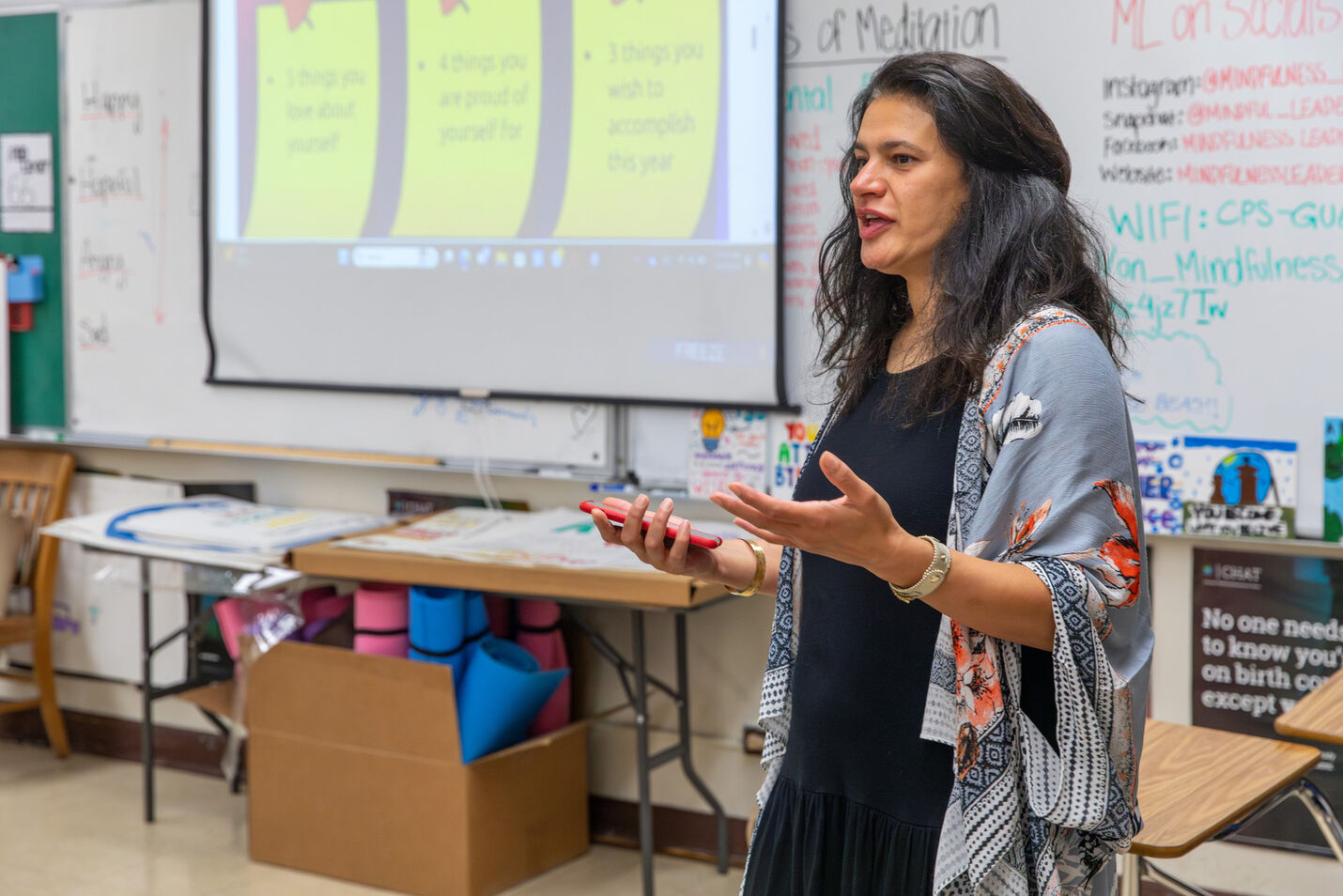Our Vision of Partnership
How can universities play a role as change agents in challenging unjust systems? At the Steans Center, the answer to this question begins with our relationships with community partners. Partners are the cornerstone of our work. They are not solely recipients of services or resources, but are viewed as equal partners who have educational resources to share with the broader community including the university. We view community partners as co-educators and encourage them to speak freely about expected rewards of collaboration but also about the potential risks to their time and resources. First and foremost, we believe that if universities are to engage with surrounding communities in order to counter injustice, they must be honest about their intentions and open to critical feedback from partners.
 Mona Antwan - Founder of Mindfulness Leader (Taken by Keeton Holder; DePaul University)
Mona Antwan - Founder of Mindfulness Leader (Taken by Keeton Holder; DePaul University)Partnerships develop out of relationships resulting in mutual transformation and cooperation between parties
We view partnerships as motivated by a desire to combine forces to address the respective missions of DePaul and community organizations. Ideally this results in outcomes greater than any one organization could achieve alone. Well planned and transparent collaboration creates a sense of shared purpose that serves the common good (Partnership Forum, 2008). The report of the Community Partner Summit (Community-Campus Partnerships for Health, 2006-08, p. 13) identified three essential components for authentic community-higher education partnerships:
- Quality processes: relationship-focused, characterized by integrity; trust-building; acknowledgement of history, commitment to learning and sharing credit
- Meaningful outcomes: specific and significant to all partners
- Transformation: at individual, institutional and organizational, and societal levels
Essential Partnership Components: Processes
- Assets (resources, strengths, and interests) identification and recognition for all partners
- Dialogue within partners and between partners
- Creation of common language
- Relationship-building strategies
- Describing and understanding each other's culture
- Learning together
- Collaborative problem posing and solving
- Collaborative agenda setting
- Identification and recognition of each partner’s needs, issues and challenges
- Self assessment and reflection within each partner group and between partners
- Constant negotiation and modification
- Supporting infrastructure in each partner’s organization
Based on the above principles, the Steans Center creates "educational partnerships" where community organizations share in the process of educating our students, faculty and staff. At the same time, we work as hard as possible with our community partners to assure that the services and resources provided by DePaul contributes to the existing work of the organization. We ask that partners evaluate our support and partnership regularly. In sum, we view partnerships as assets that require regular nurturing and critical self-reflection so that DePaul and its community partners can improve the lives of the people we all seek to serve.